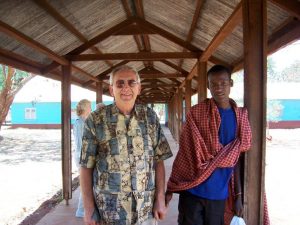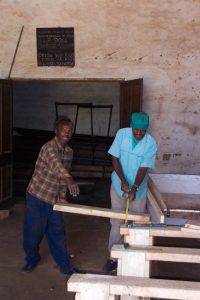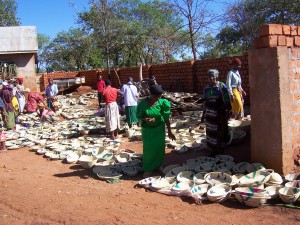Who Stole Floyd’s Bicycle?
Who stole Floyd’s bicycle?
Chapter 3
Who stole Floyd’s bicycle? You won’t believe the answer, but this is a true story.
While working on the AIDs hospice in Nkungi village, Floyd’s major form of transportation was a bicycle with his plastic bucket of tools strapped to the back. Nkungi is not large so navigating the streets on a bicycle, or walking, is the common form of transportation. There were only eight or nine bikes in the entire village.
One hot afternoon, Floyd decided to take a break and stop by the local bar with Dr. Rwezaura.
The bar in Nkungi village is much different than a bar in America due to the limited resources and building supplies. The bar was a slab of wood set on blocks under a large tree. For seats, smaller boards were set on blocks, too. A blue tarp strung across the top of thin poles covered the open-air pool table. The idea of a cold beer is foreign to people who don’t have access to refrigeration or ice, so any liquid drink, like beer, was served warm.
Floyd and Dr. Rwezaura were enjoying a warm beer and, after an hour or so, decided to leave at which time Floyd discovered his bicycle and tools were missing. He wondered who might have borrowed his tools and bike.
They walked a few blocks to the ramshackle building that served as police headquarters. The following conversation transpired between Floyd and the District Police Commander Haruna:
“My bicycle is missing,” Floyd said. “I think someone stole it.”
“It isn’t stolen, I have it,” Commander Haruna said.
“Why did you take my bike?”
“Because I want you to remodel my jail.”
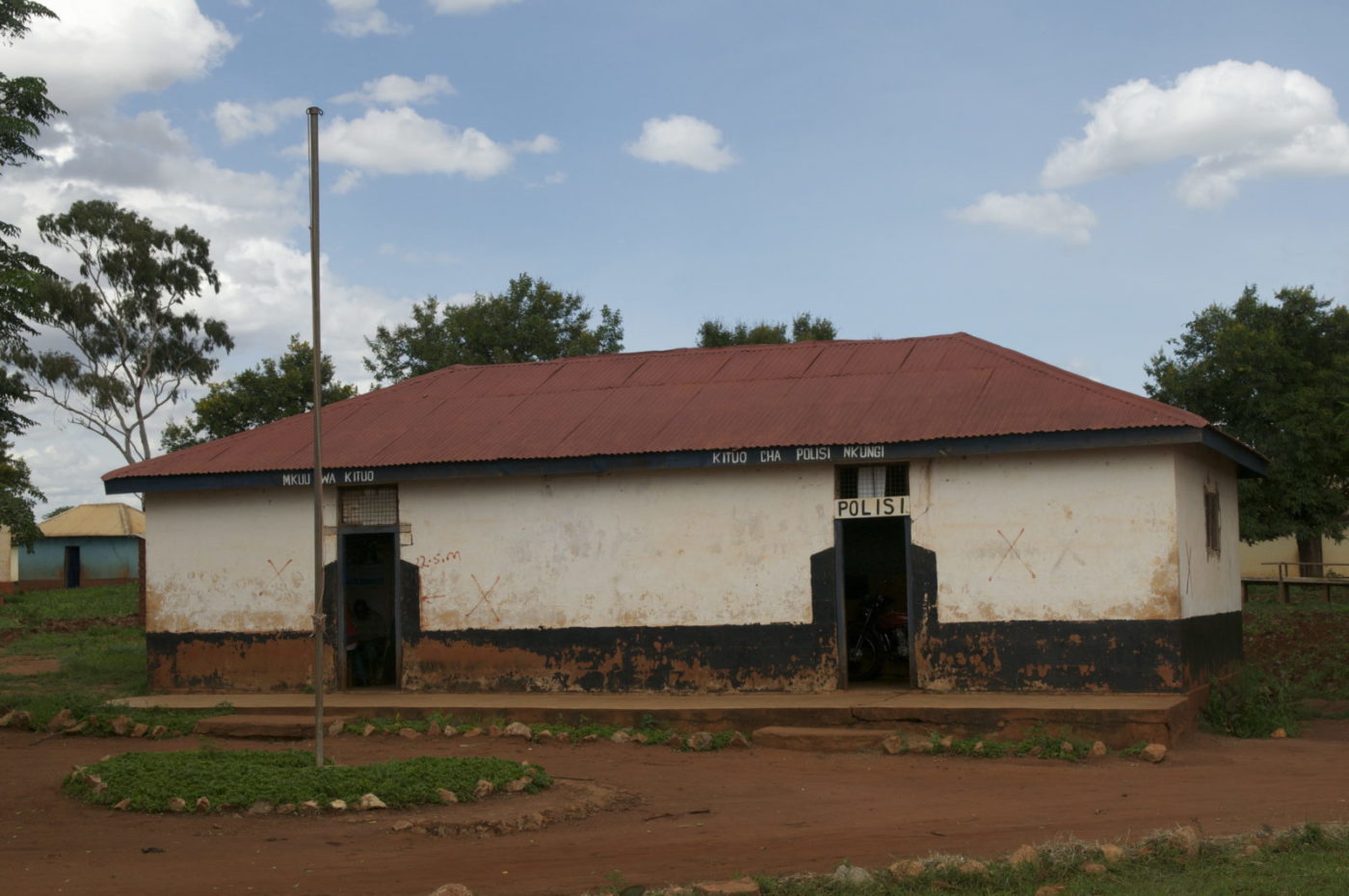
For those of us who live in a land of plenty in which our local, state and federal governments provide salaries, buildings and equipment for our public servants, it’s hard to understand that many governments do not. In developing countries, it’s common for an entire police department not to even own a vehicle or, if they do, they have to pay out of their own pockets for tires and gas.
Floyd is by nature – and by educational training – a teacher. He and Kathy use every opportunity to teach people how to do things themselves. Floyd began remodeling the police station and, in so doing, embodied one of the most important aspects in providing support to developing countries: the transfer of knowledge.
One of the most glaring contradictions in developing countries is in the realm of technology. Farmers still farm by hand with a hoe or behind oxen with a single bottom wooded plow yet have a cell phone in their pocket. On one hand, they use some of the most sophisticated forms of technology available and, on the other hand, they use equipment used hundreds of years ago of the 1880s.
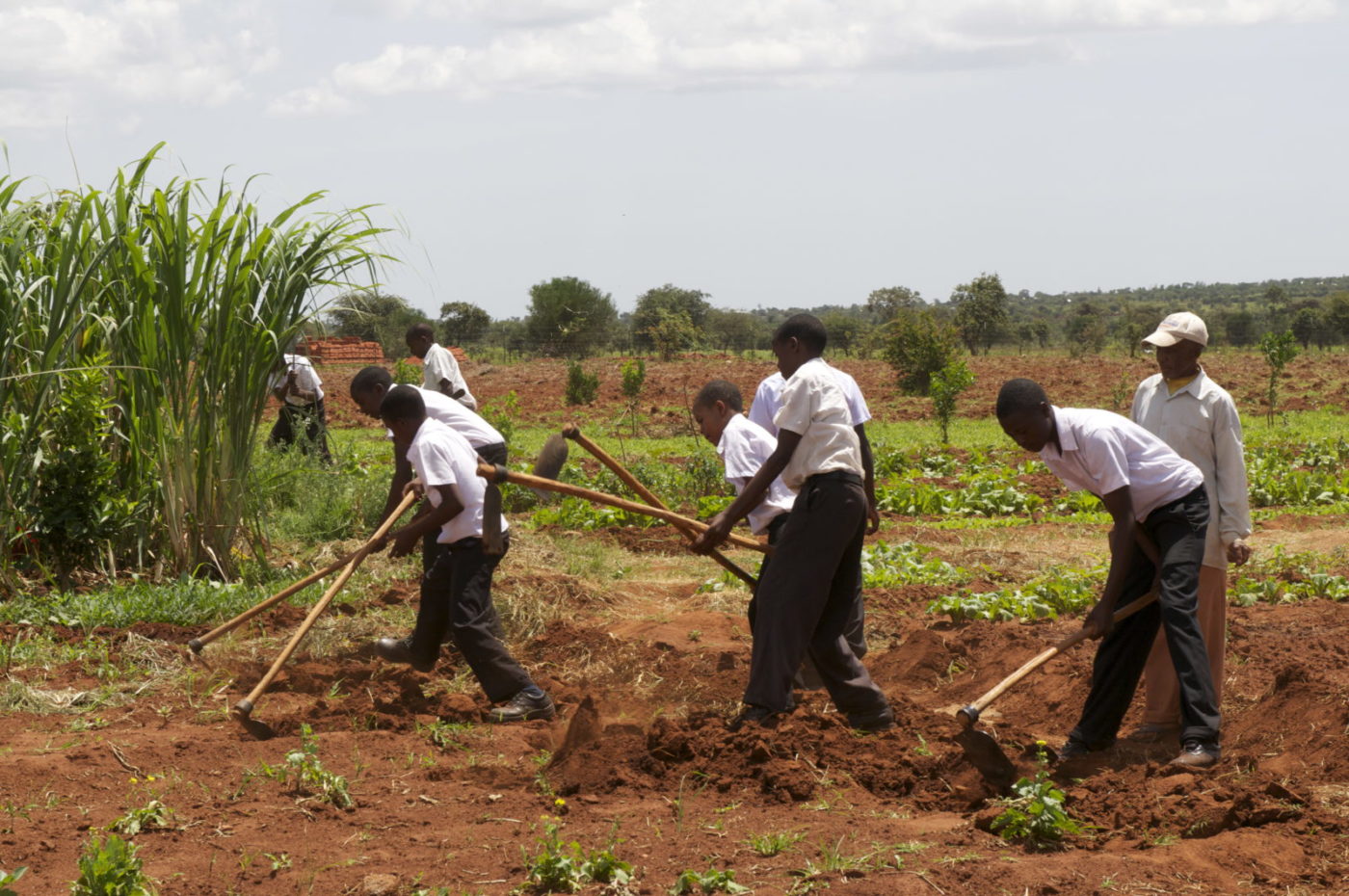
Floyd used the remodeling process to both teach and transfer, slowly, construction technology. This concept of providing empowerment along with aid is the number one focus of all aid groups of merit.
As Floyd says, “Education is the capstone to breaking the cycle of poverty and hunger.”
Up next: How to Build a Saw-Zebra
Previous Stories:
Destination Tanzania: Chapter 1
Trading Grain for Hand-woven Baskets: Chapter 2

